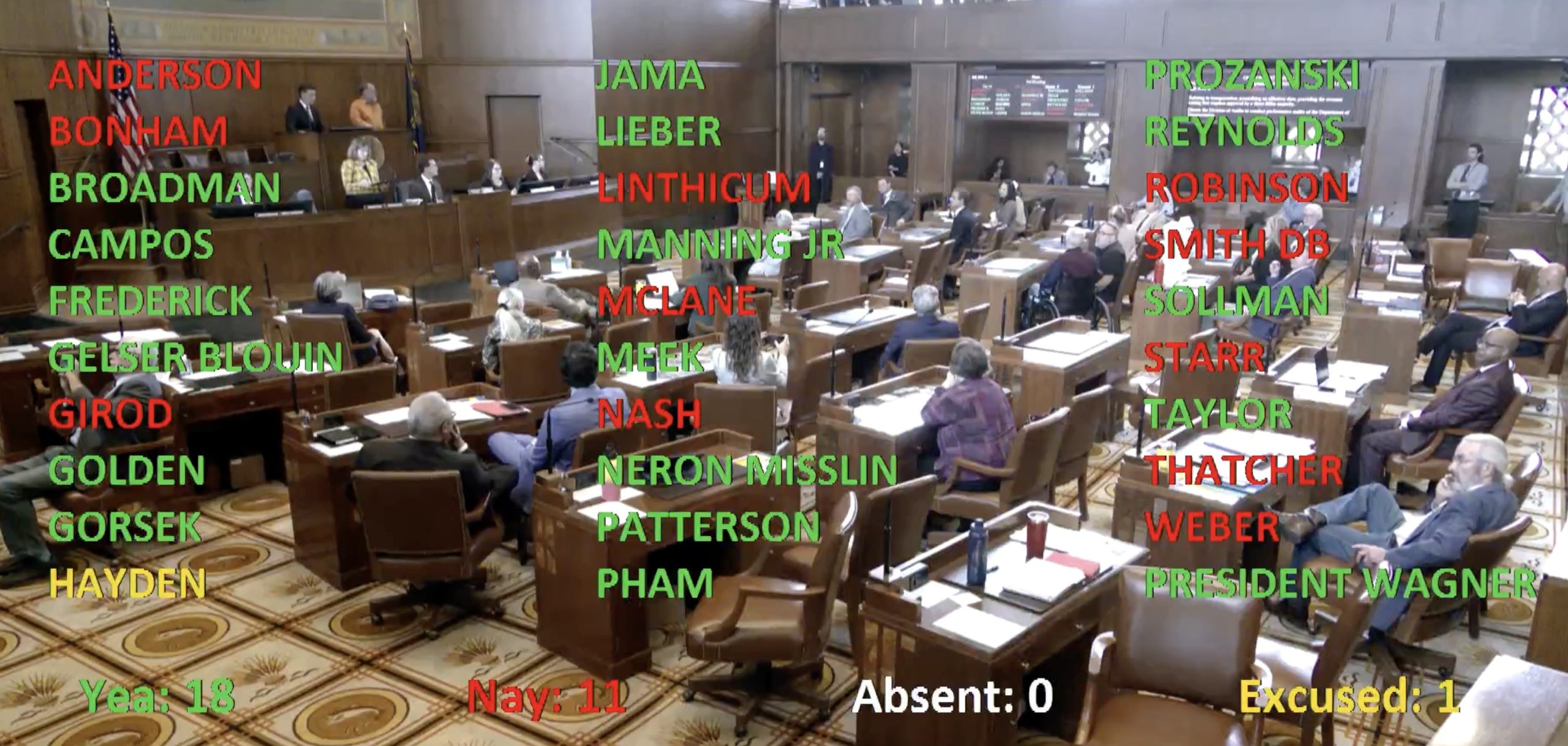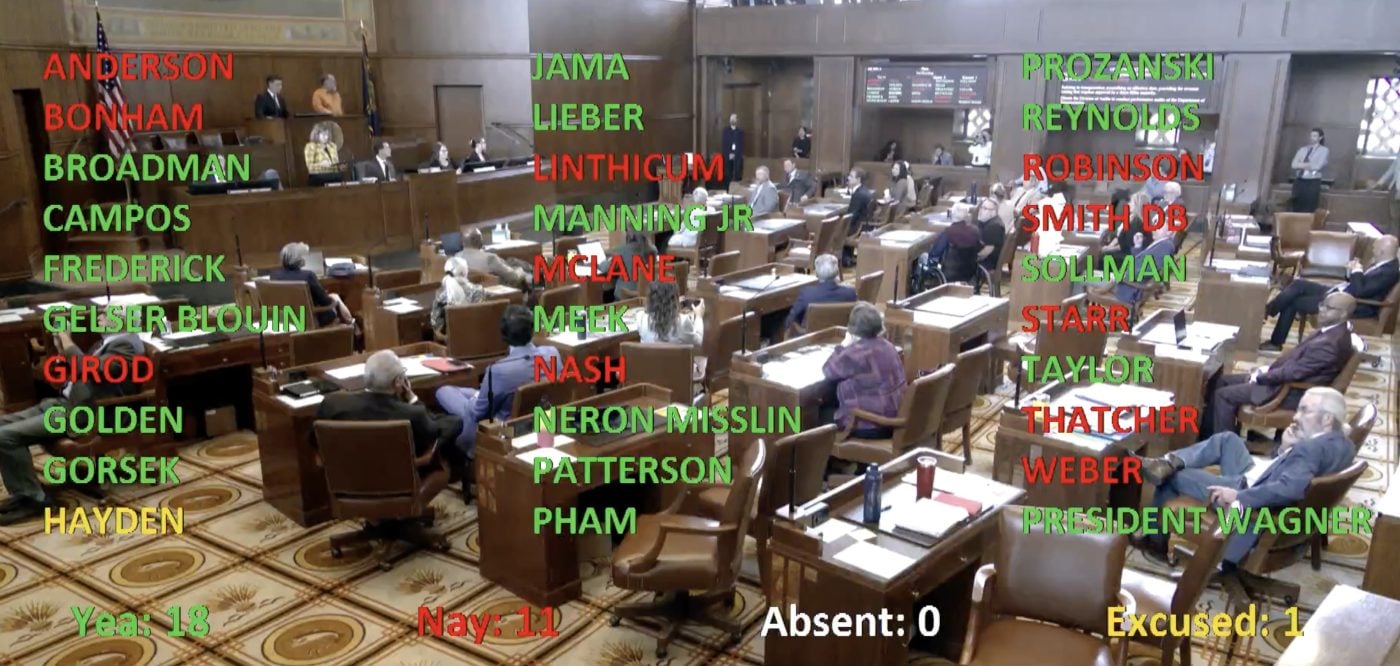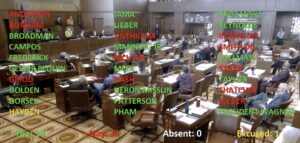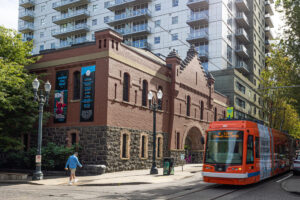Democrats pass anemic transportation bill as Republicans grandstand to bitter end – BikePortland
It’s not the transportation bill any Oregon Democrats wanted, but it’s the only one they could manage to pass. Yesterday in the Senate Chamber the House Bill 3991 finally flopped over the finish line with a vote of 18-11. There were no surprises with votes and everything went pretty much as planned by Democratic leaders, a sentence I haven’t been able to write about this legislative process since it began back in May.
HB 3991 will raise about $4.3 billion over the next 10 years from a mix of increases on gas and payroll taxes along with higher fees for car ownership. The total revenue is just 35% of the what Democrats tried for when the bill was initially released (as HB 2025). At the outset of the session, Democratic party leaders hoped to use their control of all three branches of government to boost funding for basic maintenance and operations as well as bolstering buses and transit, making ODOT’s orphan highways safer, building safer routes to school, making electric bikes more affordable, paving off-street paths, and so on.
But there turned out to be a massive sinkhole between Democrats’ policy aspirations and political acumen. Party leaders seem to misread both Republicans and members of their own party. Senate President Rob Wagner and House Speaker Julie Fahey burned crucial time working with Republicans to make the bill bipartisan. They also assumed every Democrat would vote for it, even though some from more purple districts got cold feet when they saw the price tag.
Speaking at an event on Friday, Senator and Joint Committee on Transportation member Khanh Pham blamed the failure of the more robust initial bill on a variety of factors. “I think big picture,” Senator Pham shared in remarks at a park in downtown Troutdale, “[the failure had] to do with Republican opposition to transit, as well as some of my Democratic colleagues — who agreed that transportation was important, but maybe didn’t quite feeling the same urgency, particularly around safety and public transit.”
Despite what they’ve told their base, Republican lawmakers like newly named Senate Minority Leader Bruce Starr, were given a seat at the table in early negotiations. But because their ideas were not politically viable — among them were DOGE-like proposals to eliminate the Oregon Department of Transportation’s Climate Office, bicycle and pedestrian program, and to repeal the 1971 Bicycle Bill that ensures a minimum of highway investments include adjacent bicycling and walking facilities — almost none of them were included in the final legislation.
Instead of making their arguments stronger, or building coalitions and making compromises with fellow lawmakers, Republicans chose to do their politics on social media and in grandstanding floor and committee speeches. They ginned up opposition to the bill by using scare tactics and misinformation, which poisoned the well of public debate. Starr and other Republicans, including outgoing Senator Daniel Bonham (who’s barred from returning to the capital for taking part in a walkout in 2023), tried to make their points in desperate diatribes on the Senate Floor right up until the last minute.
So acute was Republicans’ disdain for Democrats and so focused were their tactics on getting a political win, that not one of them would even consider voting for the highly-compromised bill — even with the knowledge that two Democratic Senators had to come to the capitol building to ensure its passage despite major unresolved medical issues.
And despite HB 3991 being nothing more than a stop-gap measure to preserve ODOT jobs, prevent major upheaval in the delivery of basic transportation services statewide; and despite the fact that Democratic party leaders already caved to Republicans on several fronts just to get them to show up for the special session — Starr and Bonham clung to their tired, easily disproven narratives that the bill was an assault on all Oregonians and they gleefully promised to refer it to voters.
In her opening remarks about the bill in Senate Chambers yesterday, Senator Pham cleansed our timelines by sharing sober facts about the bill. While saying, “Nobody likes to raise taxes,” Pham explained that the typical Oregon family who drives 12,000 miles a year will pay an extra two dollars every month to ensure ODOT crews can fix potholes, paint fog lines, and keep roads plowed in winter. When it comes to the payroll tax that funds public transit, a family that makes $60,000 per year will pay an additional five dollars a month to maintain service for thousands of riders in cities and rural towns — many of whom have no other way to travel to things like medical appointments.
About Republican proposals to simply move money around and slash programs to fill the budget hole, Pham dismissed them as, “Nothing short of magical thinking.” “Any good faith review of ODOT’s actual budget would recognize that ODOT’s investments in DEI, safe routes to school and climate policy are orders of magnitude smaller than the massive budget holes we face to merely preserve our existing road systems,” she said.
And in the saltiest language I’ve heard from the very mild-mannered Pham about her legislative counterparts, she added, “Oregon’s policymakers need to be clear-eyed about the challenges ahead, not self-administering our own version of DOGE and weakening our ability to invest in the vital social services, education and infrastructure on which our communities depend.”
While Republicans gear up to gather signatures required to repeal the tax and fee increases, Democrats and supportive advocacy organizations are already talking about the next legislative session. Even if no major transportation policy proposals arise in the 2026 short session, we’re guaranteed the topic will be back on the table in 2027 when Democrats will have to fight to save transit funding from a Republican-built fiscal cliff. That’s because one of the compromises Republicans won by using the leverage of quorum was to sunset the payroll tax increase that pays for transit after two years.
Hopefully by then Democrats have learned the lessons of this past session.
Share this content:
















Post Comment